Patriot Power Solar Generator 2000X & Solar Panel - Pre-Owned

Patriot Power Solar Generator 2000X & Solar Panel - Pre-Owned
Best Selling Generator with Included Solar Panel. Silent, fume-free and safe to use inside your home. Worth its weight in gold in a blackout and charges in the sun. This solar power station for home charges more devices for longer in a blackout. Double the capacity & more peak power than before. Now expandable for even more power when you add a 2000X Expansion Pack.
- 2200W to run more at once
- More peak power for bigger appliances
- 1612 Wh capacity (expandable!)
- 12 outlets
- Power fridge, TV, CPAP & more
- FREE Solar panel included
- FREE Shipping & handling to lower 48
- Works with the Expansion Pack & Platinum Upgrade
- FINAL SALE
Pre-owned units are available & final sale. These units are in excellent working condition; some have minor cosmetic imperfections that don’t impact function.
In Stock

Easy Payment Plan Option

Satisfaction Guaranteed

FREE Shipping (USA 48)
Best Selling Patriot Power Solar Generator 2000X
Now With Double the Power To Protect Your Family
Hurricanes, wildfires and freak storms happen more every year. As a nation… Americans aren’t adequately prepared. We’re so dependent on our electrical supply… that when it suddenly fails, we panic! People forget how to function until the lights come back on.
After months of hard work with our team of engineers in Utah, and countless hours of testing, electrical engineering and breakthrough battery design… Introducing our best selling Patriot Power Generator 2000X.
A nearly endless supply of life-saving backup power when you need it most. Our solar generator now has 2X the battery capacity. Lets you add more power with our expansion pack (sold separately). AND has 2,200 watts of continuous power — more than the best-selling 1800 model.3 Wow. So you get more power for longer... and can run more devices than ever before.4
Thoughtfully Designed for Optimal Power & Performance
12 Outlets
AC, USB-A and USB-C outlets
3500 Lifecycles
That’s like 9.5 years of daily use
6hr Recharge
Fast charge with AC cord — or 16 hours with 1 solar panel
2200 Watts
Of continuous power output
4000 Watts
Of peak output power — 31% more than our previous model
Expandable
Add an Expansion Pack to 2x the capacity
Long-Life Battery
Lithium-iron-phosphate outperforms lead or lithium
365-Day Warranty
Shop risk free — satisfaction guaranteed
Peace of Mind in One Package
1 Patriot Power Generator 2000X
1 100-Watt Folding Solar Panel
1 25' Extension Cord
1 User Manual
All the Cords You Need to Operate the Unit

Watch the video to see how easy it is to use your new solar generator when you get it. It's truly plug and play!
Battery Capacity
1612Wh
AC Input
523 Watts
Outlets
- 2x PD USB-C 60W
- 2x USB-A 60W
- 4x AC plugs: 110V–120V 50-60Hz: 2 outlets share a combined total current limit of 2000w
- 1x 12V cigarette lighter outlet with 10A (120W) max output
- 2x PD USB-C 60W
- 2x USB-A 60W
- 4x AC plugs: 110V–120V 50-60Hz: 2 outlets share a combined total current limit of 2000w
- 1x 12V cigarette lighter outlet with 10A (120W) max output
Charging
- 1x 12V DC charging input
- 1x 110V - 240V AC charging input
Weight
60lbs
Dimensions
18.26" L x 13" W x 11.5" H
1612Wh
523 Watts
- 2 PD USB-C 60W
- 2 USB-A 60W
- 4 AC plugs: 110V–120V 50-60Hz: 2 outlets share a combined total current limit of 2000w
- 1 12V cigarette lighter outlet with 10A (120W) max output
- 1 12V DC charging input
- 1 110V - 240V AC charging input
60lbs
18.26" L x 13" W x 11.5" H
Safe, Long-Lasting LiFePO Battery
Inside your solar generator there’s a state-of-the-art, stable & powerful lithium-IRON-phosphate battery.
Some competitors use cheap, outdated battery technology like lead-acid or lithium-ion. These inferior batteries can be dangerous and also have far few life cycles (as little as 500) so they don't last nearly as long.
The lithium-IRON battery in your Patriot Power Generator 2000X is reliable, powerful, and most importantly — safe.
In fact, you can fully drain and recharge your Patriot Power Generator 2000X over 3,500 times. While retaining at least 80% of its capacity. That's 9.5 years of daily use. That's over 4X the life of most generator products!
Pure Sine Wave Outlet
You won’t find this premium feature with most generators.
Having pure sine wave energy is like having your very own power grid. It'll give you that “umph” you need to run appliances effectively and efficiently. Not only that, but pure sine wave energy also helps you run more sensitive gear too — like laptops or anything with a microchip.
Overcharge Protection
Every Patriot Power Generator 2000X comes with smart tech that stops it from overcharging or discharging. So you can charge your solar generator and not have to worry about damaging it.
WARNING: Cancer and Reproductive Harm - www.p65warnings.ca.gov
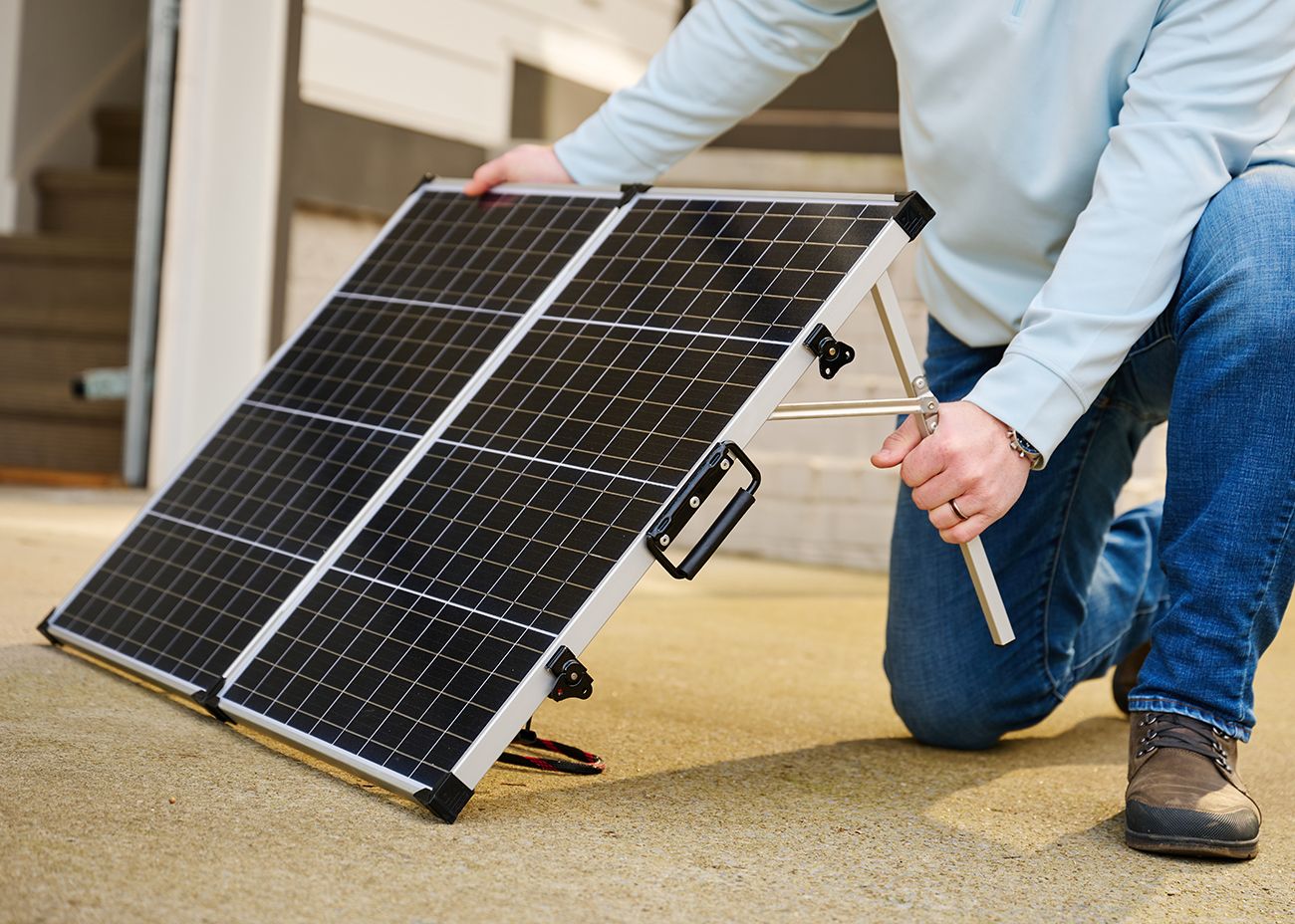
Includes a FREE 100-Watt Folding Solar Panel
Most of our competitors don't do THIS...
Our 100-watt solar panel comes FREE with your generator. No catch. You’ll get a rugged, durable metal solar panel with reinforced corners. Made to last. Plus, it folds easily for discreet storage and includes a sturdy carrying handle so that you can take it anywhere.
Our Storms Keep Getting Stronger...
Will You Be Ready When the Next One Hits?
83%
Of blackouts in the USA are weather-related
64%
Increase in power outages in the past 10 years
2X
Power outages have doubled in the past 20 years
When it Comes to Backup Power, Choose Wisely
Sure, you could get a gas generator. But they make a TON of noise and draw unwanted attention when discretion is a must. Plus, storing fuel is dicey. Gas stations could sell out. And the fumes are dangerous. The US Consumer Product Safety Commission (CPSC) reports gas generators kill more than 85 Americans every year. And injure thousands more.2 It warns that portable gas generators are among the deadliest consumer products.
It’s up to you to make sure your family has the power, food and warmth to keep them safe, and comfortable, and ready for a crisis. You need a backup power source that’s fume-free and whisper-quiet.
What Can the 2000X Power?
Common Household Appliances
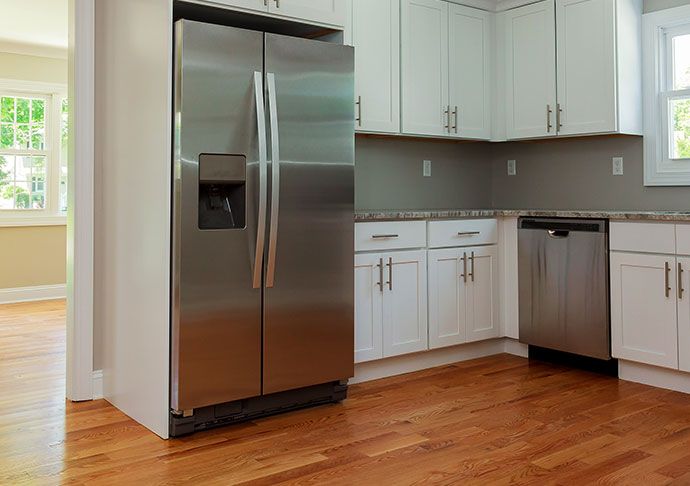
13.4 Hours Continuous
53.7 Hours Cycling
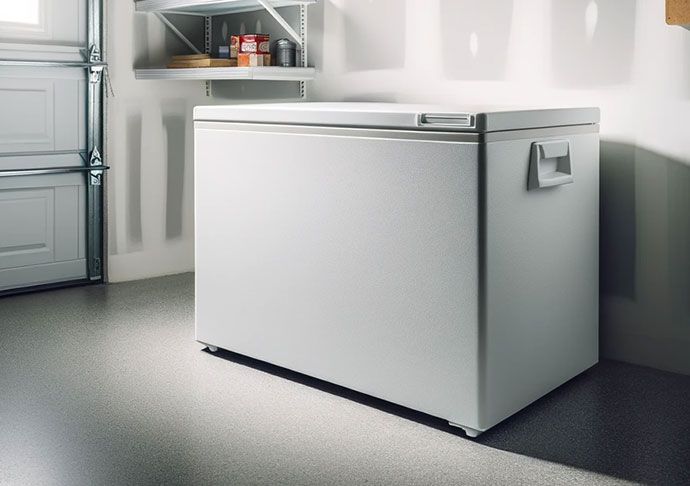
8 Hours Continuous
201.5 Hours Cycling
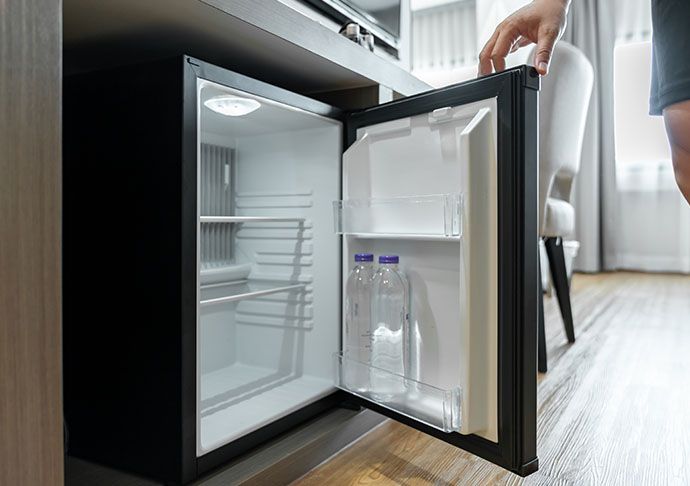
20.2 Hours Continuous
80.6 Hours Cycling
Critical Medical Devices

32 Hours

107.5 Hours
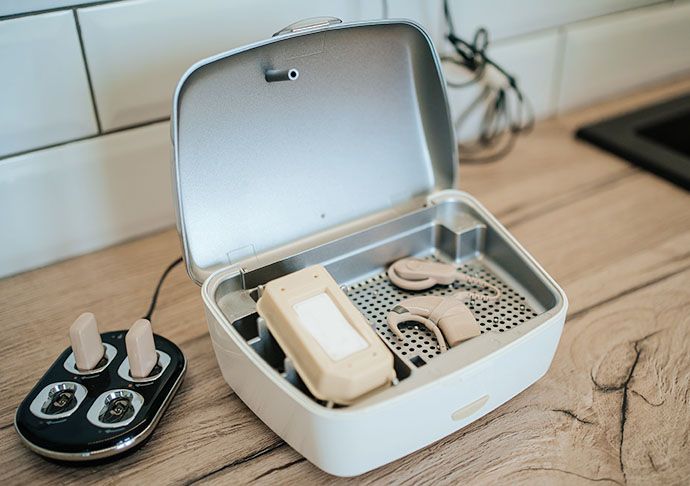
322.4 Hours
Survival Tools

322.4 Hours
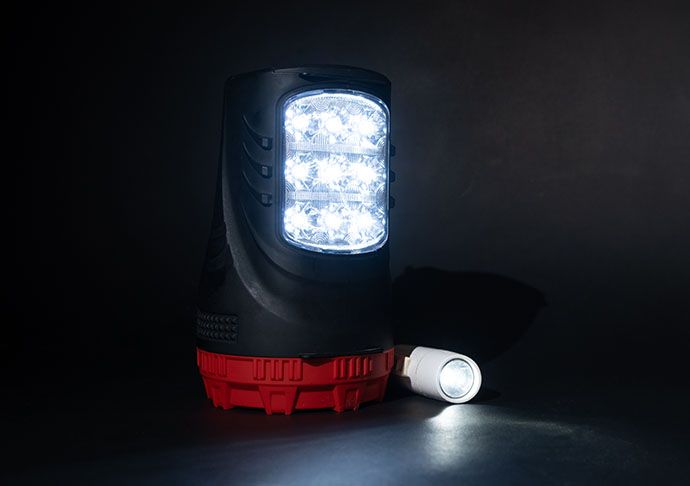
161 Hours
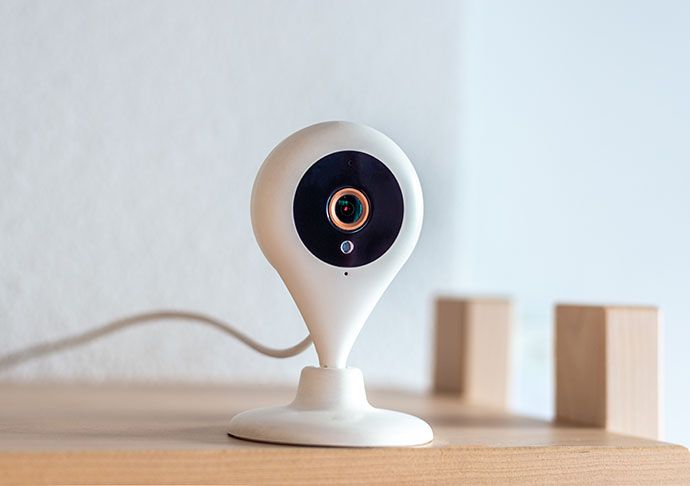
107.5 Hours
Military Equipment

161 Hours

16 Hours
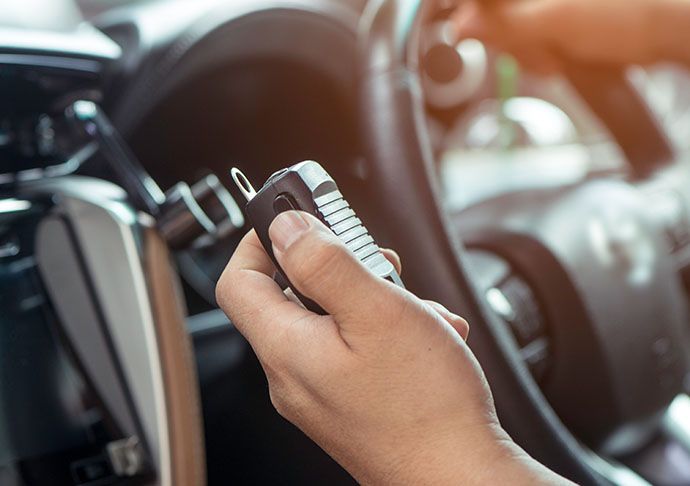
32 Hours
Camping & Outdoor
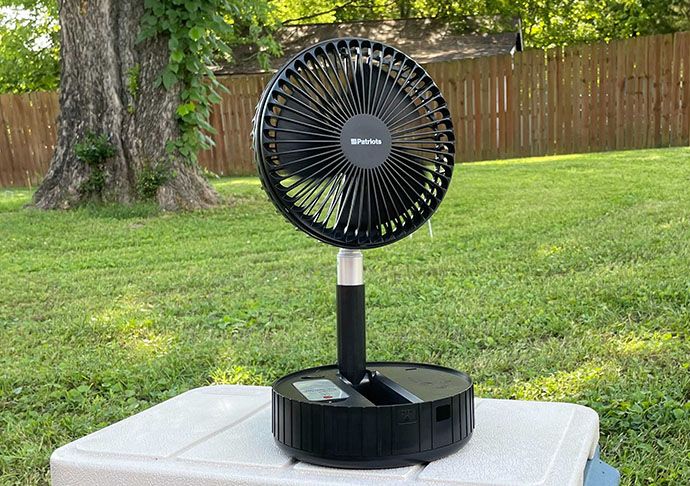
40.3 Hours

322.4 Hours

80.6 Hours
Hunting & Fishing Gear

322.4 Hours

322.4161
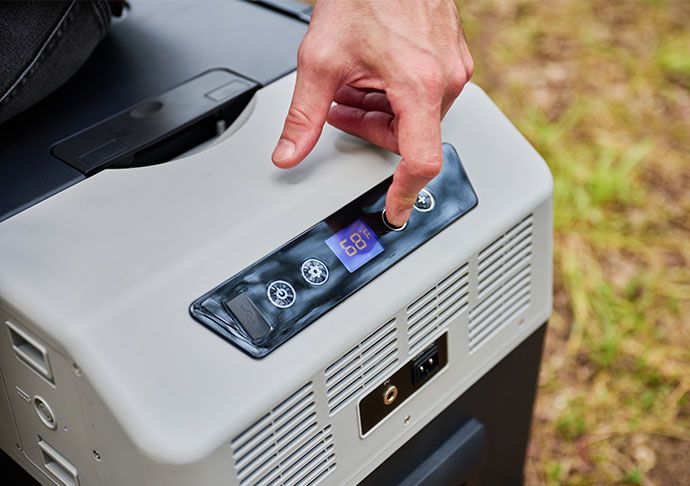
27 Hours
- *Run times are approximate. Actual results vary based on appliance and usage conditions. For more information, see footnote 4.

How Long Will it Run My Fridge?
Keeping your food and medical supplies chilled in a power outage is critical. So here’s Steven to give you all the tips and tricks to keep your fridge running — even during a blackout.
2,200 Watts of Continuous Power & 4,000 Watts of Peak Power
Power outages can last days, or even weeks. Creature comforts like clean clothes and blast of cool air can keep spirits up and panic at ease. This could make or break your family in a crisis.
But to be clear… this is NOT a full-house solution. The Patriot Power Generator 2000X was designed to help keep you alive when the “worst-case scenario” occurs. When that happens, you’ll have to adopt a survival mindset, and only use essential items.
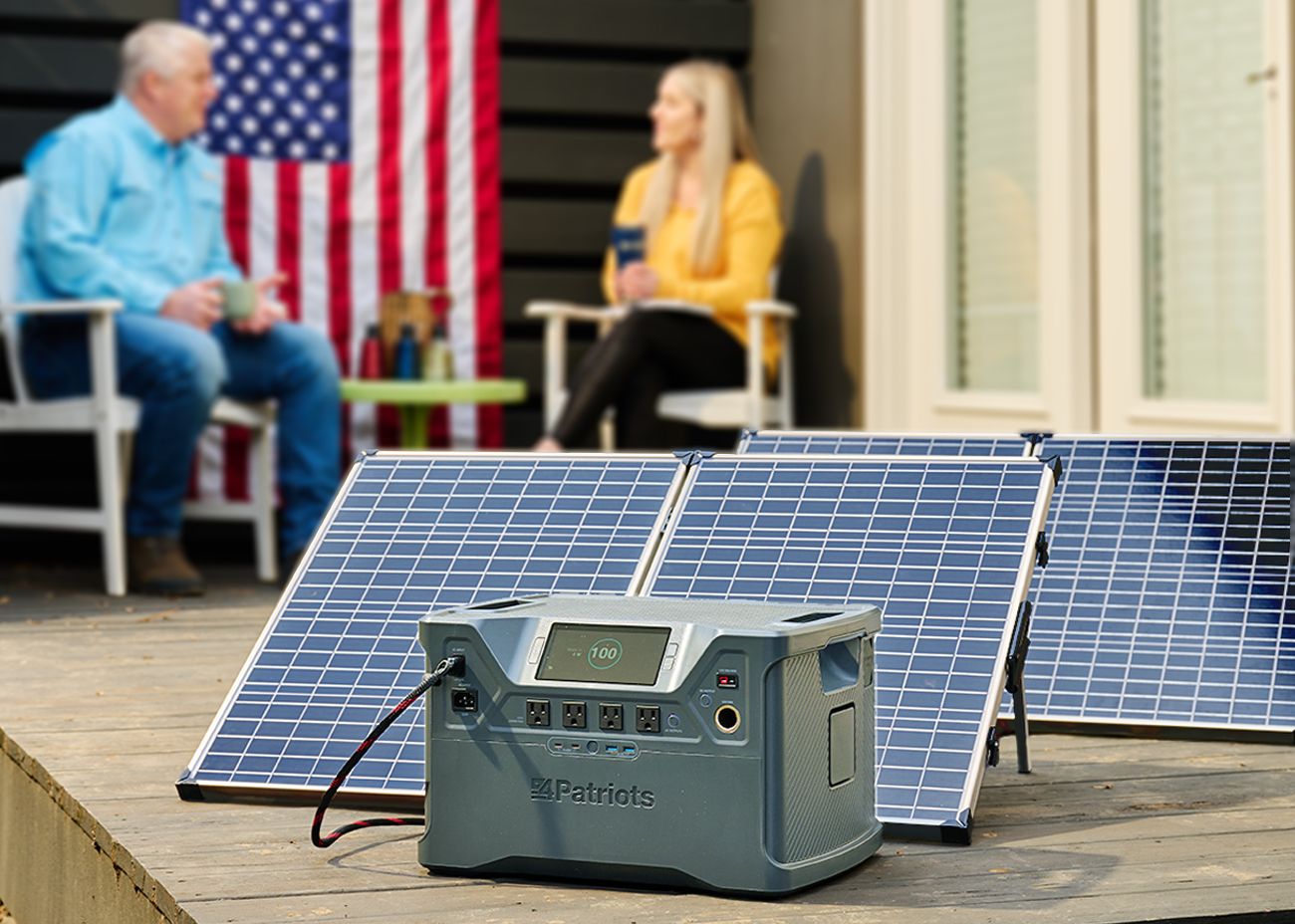
31% More Peak Power
The Patriot Power Generator 2000X can handle up to 4,000 watts of peak power — WOW! That’s a full 31% gain over the best-selling 1800 model, thanks to this better-than-ever technology. So your solar generator can handle a wider variety of appliances.
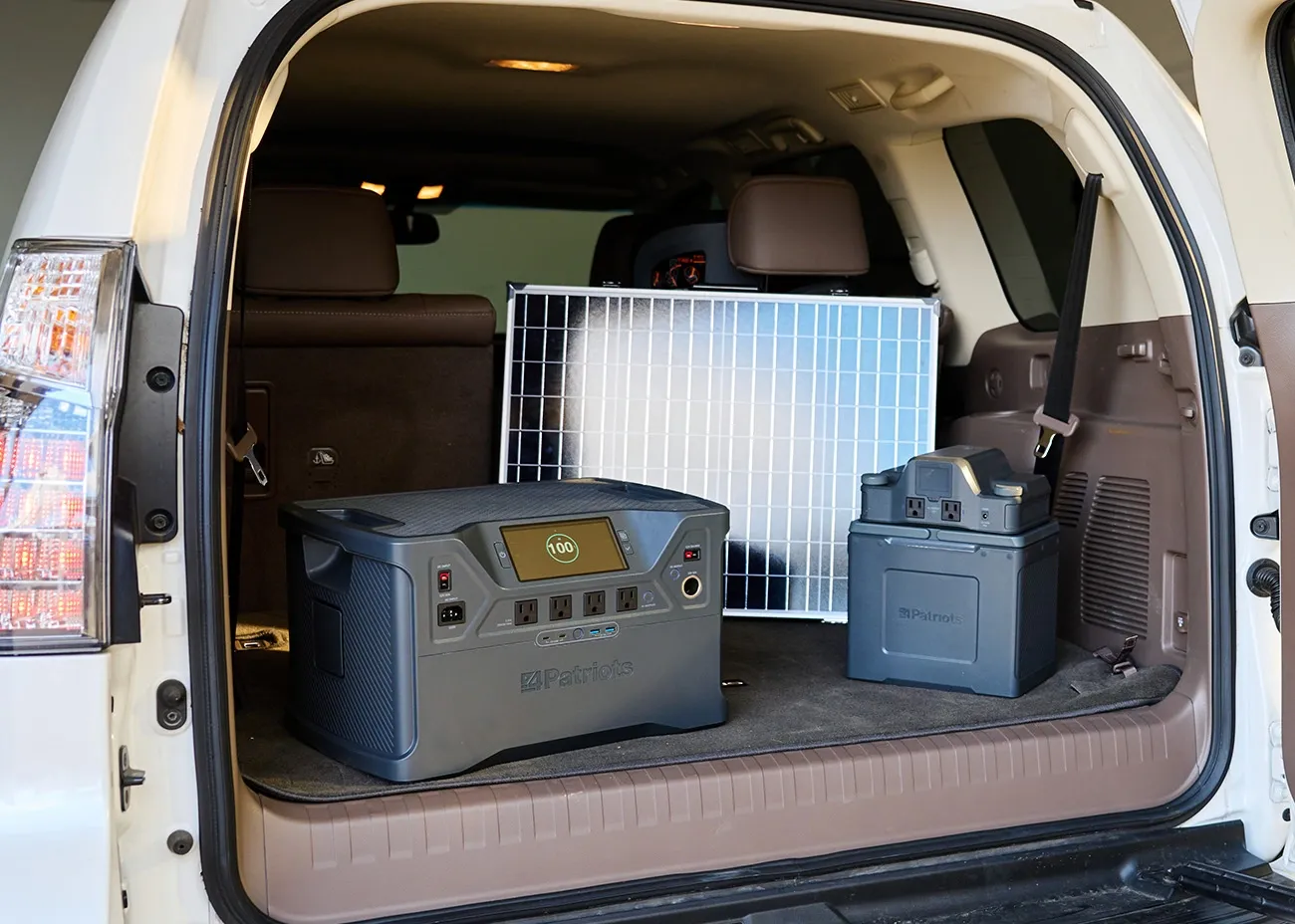
Compact, Portable and Easy to Use
Your generator arrives charged and ready to go. There’s no assembly required. At about 60 pounds, you can take your generator with you. Especially if you need to “leave home in a hurry” — this portability is a huge advantage over other types of backup power.
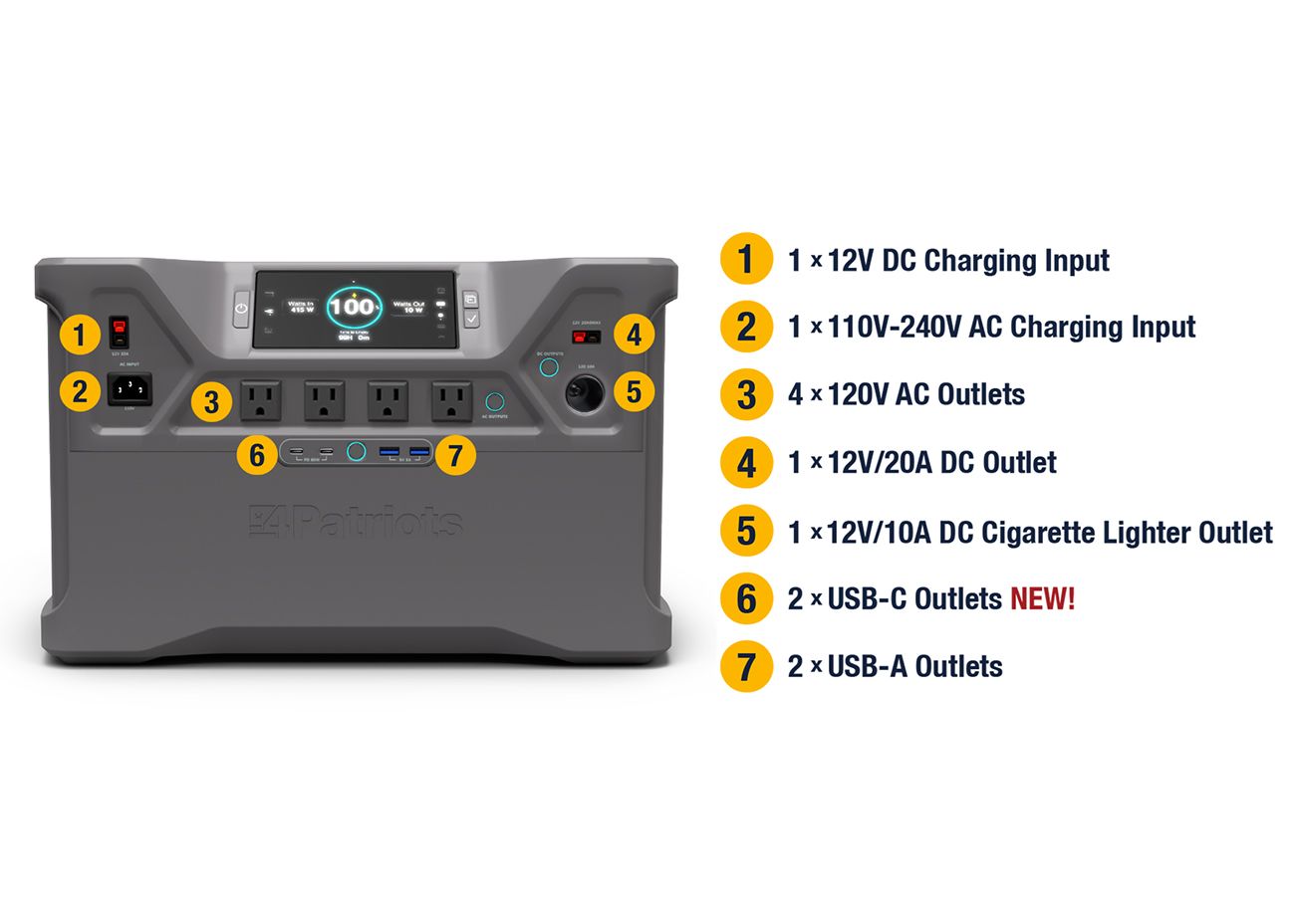
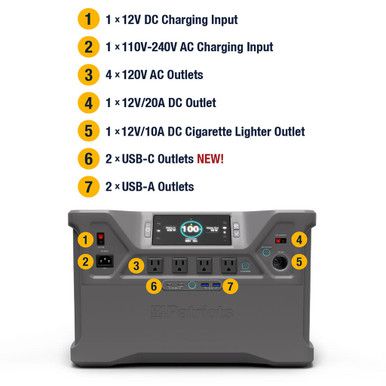
More Outlets for More Devices
Power small appliances, fans, TVs and laptops with a total of 4 AC outlets (2 more than the previous model). Plus, 2 “fast charge” USB-C plugs for modern phones and laptops. These special outlets charge smartphones 20X faster than regular USB-A plugs — which could mean the difference between a call to a loved one and a dead paperweight in an emergency.
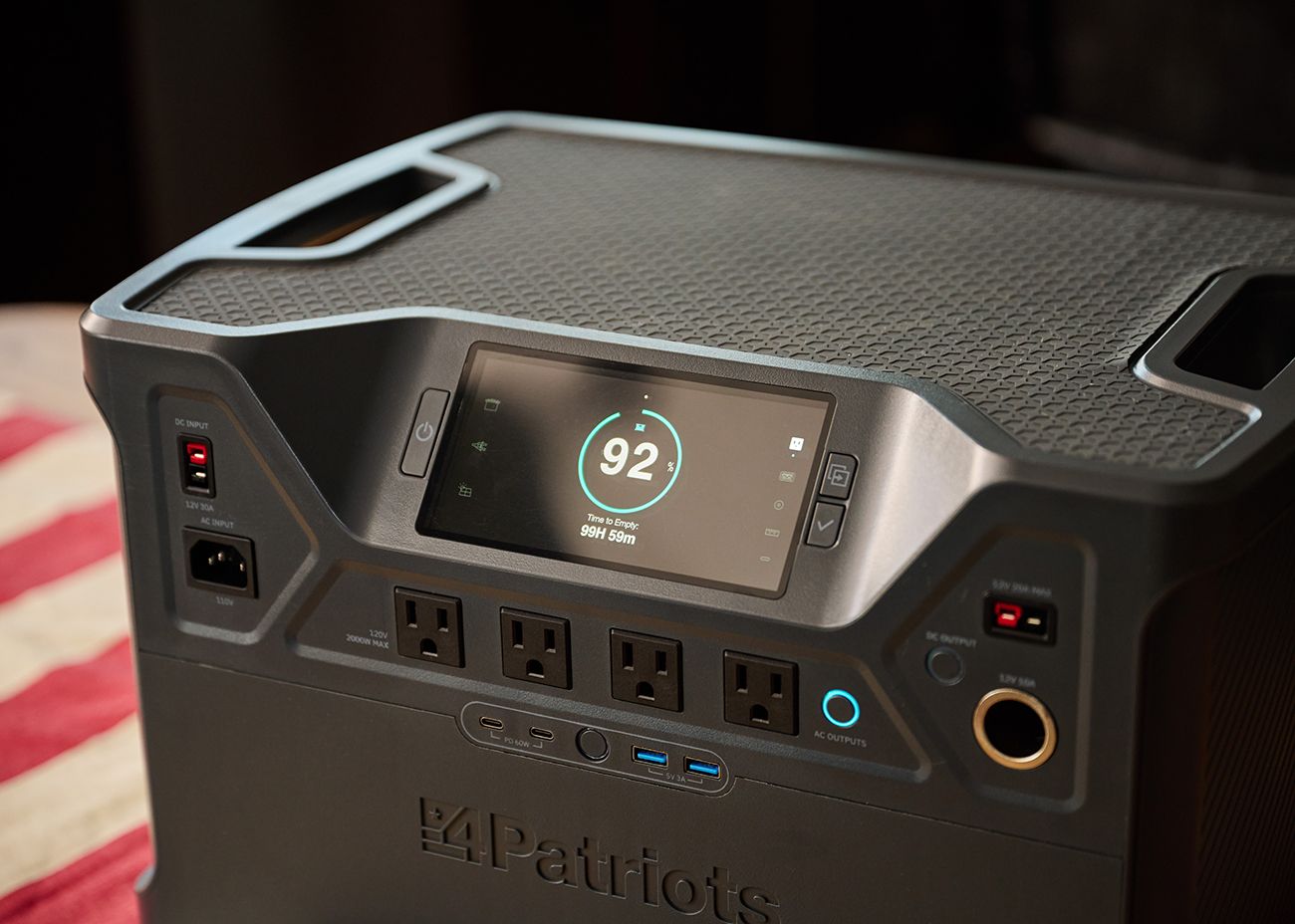
User-Friendly Screens & Buttons
Take the guesswork out of your safety in an emergency with:
- Bright & angled LED screen
- On-screen troubleshoot support
- Precise data on power input & output
- Battery charge & discharge rate — so you know exactly how long your device will run
Get More Power & Charge 2X Faster
Upgrade your solar generator & nearly DOUBLE your available power.
The 2000X Expansion Pack is designed to work perfectly with your solar generator. It's a simple, 2-piece system that increases the battery capacity of your Patriot Power Generator 2000X.
Frequently bought together
* Real reviews from real customers. Sometimes customers receive a free product to test or receive a free product as a thank you for submitting honest feedback. For more information, see footnote 1.
PATRIOT POWER GENERATOR 2000X
Frequently Asked Questions
The Patriot Power Generator 2000X is one of our best-selling portable power station. It’s safe to use inside your home and can now deliver even more power… and last even longer than ever before. It is NOT available from any other store, website, or distributor. You can only get it from 4Patriots.
- Powerful Backup Energy Source: Delivers 2,200 watts of continuous power and handles up to 4,000 watts of peak power.
- Reliable Battery: Equipped with a lithium-iron-phosphate battery, known for safety and long life, with 3,500 recharge cycles.
- Generous Capacity: Stores 1612Wh of energy, providing extended runtime for essential appliances.
- Expandable Power: Compatible with an optional expansion pack to increase battery capacity for even longer use.
- Multiple Device Support: Features 4 AC outlets and 2 USB-C fast-charge ports to power various appliances and devices simultaneously.
- User-Friendly Interface: Easy-to-read LED screen provides real-time data on power input/output, battery status, and troubleshooting.
- Advanced Safety Features: Built-in protections prevent overcharging and over-discharging, ensuring long-term reliability.
- Versatile Charging Options: Recharge via AC cord, solar panels, or alternative methods like hand-crank or wind turbine.
- Portable and Ready to Use: Compact design and pre-charged for immediate use during emergencies or outdoor activities.
Perfect for home backup, camping, or off-grid living!
And much more! Check out the Run Times Chart for more common appliances you can run in your home.
Full-Size Fridge (120W)
54 Hours Cycling
13 Hours Continuous
Mini Fridge (80W)
81 Hours Cycling
20 Hours Continuous
Chest Freezer (200W)
202 Hours Cycling
8 Hours Continuous
Washing Machine (500W)
3 Hours
Laptop (45W)
36 Hours
CPAP Machine (50W)
32 Hours
LED Lamp (10W)
161 Hours
Smart Phone (5W)
322 Hours
Dishwasher (1200W)
81 Minutes
Television (60W)
27 Hours
Microwave (1000W)
97 Minutes
* Run times are approximate; results vary based on appliance & usage conditions. For more information, see footnote 4.
Yes. It’s designed to work perfectly with your solar generator power station. It stacks on top of your solar generator to almost DOUBLE your available power. Or you can plug devices directly into it… and use your generator and expansion pack in different parts of your home at the same time.
Just think how nice it would be to almost DOUBLE your power…
- Cycle your fridge and your freezer at the same time
- Power more devices each day
- Run your devices for longer
- Have backup power in 2 rooms at once
- Stop worrying about power management
Click here to add even more battery power with the Patriot Power Generator 2000X Expansion Pack (sold separately).
Yes. Your generator arrives charged and ready to go. There’s no assembly required and you can start using it in just 3 simple steps.
- Unfold your solar panel in the sunlight
- Plug your solar panel into the generator
- Plug your devices into the generator & enjoy FREE power from the sun
Charge your Patriot Power Generator 2000X in as few as 6 hours via AC cord! And there are more ways to charge up your generator, too.
You can recharge your way — it’s totally your call.
- “Fast charge” with the included AC cord
- Charge for FREE with the sun, using the included solar panel
- And thanks to the MPPT technology, now you can charge with a hand-crank, bicycle, wind turbine, windmill — whatever!
If you’re a DIY person or enjoy homesteading, you’ll “geek out” over this new feature.
It has a 384 Maximum Power Point Tracking (MPPT). In a perfect scenario with ideal weather conditions:
- 4 panels = 4 hours
- 3 panels = 5 hours and 22 min
- 2 panels = 8 hours and 3 mins
- 1 panel = 16 hours and 7 mins
You don't need to run your fridge continuously. Here's how to manage it efficiently during a power outage:
- Cycle Power: Your fridge's compressor cycles on and off. When the compressor stops, you can unplug your generator to conserve power.
- Keep It Full: A full fridge (with water bottles or containers) helps maintain cold temperatures, reducing the need for frequent cooling cycles.
- Location: Place your fridge in a naturally cooler area, like a basement, to reduce its workload.
- Recharge Efficiently: Use downtime (when the fridge isn't running) to recharge your generator with solar panels. Daisy chain multiple panels for faster charging.
- Maintain Food Safety: Keep the fridge at or below 40°F to ensure food safety during extended outages.
When you order, you will instantly receive an order confirmation via email. Our goal is to get your order out the door to you as quickly as possible. Your order is hand-packed and ships with a premium carrier such as UPS or FedEx. Most parcels leave our warehouse 3 to 5 days after an order is placed, and arrive at their destination 2 to 3 days later. When it ships, you get an email with a tracking number so that you can follow it right to your door.
Note: Some products can't be shipped to Canada, Hawaii or Alaska. We do not ship to PO boxes.
Buying online is absolutely one of the safest ways to shop. SSL Certificates authenticate our identity and encrypt the information that visitors enter on our site. This is the same type of technology used by most major retailers, including Amazon, to protect their shoppers.
We at 4Patriots understand that you are putting your trust in us when you purchase from us online. We go to great lengths to ensure that your information is safe from beginning to end and we thank you for your confidence in us. If you have any questions or prefer to order by phone, please call us at 1-800-304-4202.
Klarna's Pay in 4 is a flexible payment option that lets you divide your purchase into four interest-free installments. The first payment is made when your order ships, and the remaining three payments are automatically charged to your chosen payment method every two weeks.
To use Klarna, you must be a U.S. resident, at least 18 years old, have a valid debit or credit card or bank account, a positive credit history, and the ability to receive verification codes via text. Klarna accepts most debit and credit cards, including Mastercard, Visa, Discover, and American Express, as well as checking accounts for ACH payments. Prepaid cards are not accepted.
If there's an issue, such as receiving the wrong or faulty items, you don't need to pay for those items. Contact 4Patriots for a resolution, and inform Klarna about the problem through the Klarna app to pause your payment plan until the issue is resolved. Follow our return instructions and report the return in the Klarna app. This ensures your payment plan is updated to reflect the return.
Yes, you can make early payments through the Klarna app by selecting "Payment Options" for your purchase.
If your question isn't answered here, visit Klarna's full FAQ page or reach out to their customer service through their website.
References:
- All testimonials in this advertisement are from real people; sometimes names and photos have been changed to protect their privacy and some were given free products in exchange for their honest feedback. Testimonials represent exceptional results, don't apply to the average purchaser and are not intended to guarantee that anyone will achieve the same results. The organizations, publications and people referenced on this site are not affiliated with 4Patriots. They have not endorsed, sponsored or recommended this product; no affiliation or endorsement is claimed. Terms & conditions apply. Cade Courtley is a former Navy SEAL and Platoon Commander who served 9 years of active duty and has been compensated by 4Patriots for his hard work in helping us test and endorse this product.
- U.S. Consumer Product Safety Commission. CPSC Releases New Report on Carbon Monoxide (CO) Fatalities, Urges Generator Safety in New PSA. August 2022.
- Peak output for the Patriot Power Generator increased from 3,048 W (1800 model) to 4,000 W (2000X model). Continuous output is 1,800 W and 2,200 W, respectively. Storage capacity for DC devices increased from 768 Wh (1800 model) to 1612 Wh (2000 model).
- Refrigerators, freezers and similar appliances maintain a safe temperature by running on cycles. The CDC recommendation is to keep fridge temperature below 40°F. If the doors stay closed, food will stay at a safe temperature for up to 4 hours in a refrigerator, 48 hours in a full freezer, and 24 hours in a half-full freezer. Usage conditions will impact this estimate (interior temp, exterior temp, appliance age & features, fridge contents, etc.). Click here for more tips on cycling your fridge or freezer.

